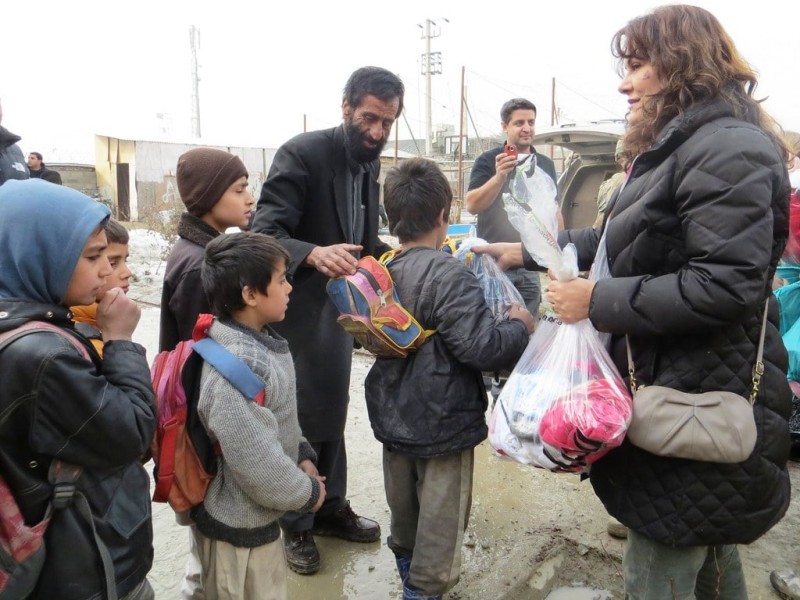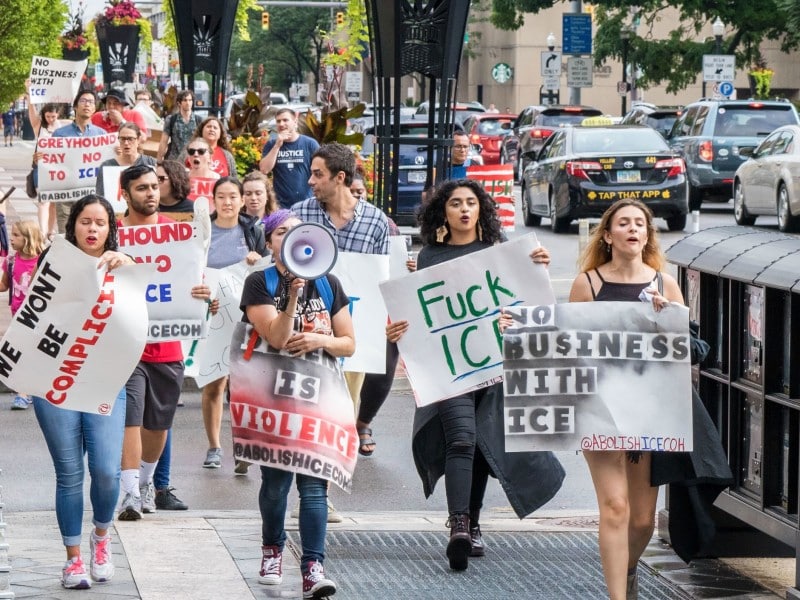Afghan refugees in Columbus endure amid delays, uncertainty
Khan, who worked alongside the U.S. military in Afghanistan for two decades, now lives alone on the city’s North Side, awaiting a green card that could finally allow him to reunite with his family.

Much of Khan’s adult life has been lived in isolation.
Prior to the 2001 U.S. invasion of Afghanistan, Khan (a pseudonym) worked as a farmer in the Khost Province, spending long hours alone in the fields and away from his family. After the war broke out, he joined the Khost Protection Force (KFA), a CIA-backed paramilitary organization for which he served two decades as a medic, working up until the moment U.S. forces abruptly withdrew from the country in August 2021. As with farming, work as a medic required long hours lived at a distance, with Khan choppering to military bases and battle fronts across the region, where he’d live weeks or months at a time while tending to the wounded.
As a result, Khan said he’s been able to easily adjust to life on his own in Columbus, a city he’s called home since October 2021. Khan arrived in Columbus following short stints at refugee camps in Virginia, Germany and Qatar, where he first landed after fleeing southeastern Afghanistan under relentless Taliban attack.
“It’s been this way my whole life. I’ve never seen a good day,” Khan said in early June through an interpreter at the North Side offices of Community Refugee and Immigration Services (CRIS). “I’ve been a traveler my last 30 years, so I got used to staying out and staying away.”
Khan is one of about 400 Afghans – a majority of whom worked for the U.S. government in Afghanistan in the years prior to the 2021 evacuation – currently living in limbo in the Columbus area. Afghan refugees like Khan were initially granted a two-year parole, which was set to expire in August. But a recent decision by the Biden administration to extend parole will allow many Afghans to continue to live and work lawfully in the U.S. while pursuing permanent protections.
Khan, for one, qualified for a Special Immigrant Visa (SIV) due to his two decades of service in support of the U.S. government and its military operations, and in late May he was finally granted approval to apply for a green card. Khan’s approval arrived nearly 18 months after attorneys first submitted his application alongside letters of recommendation from the U.S. Department of State, copies of his work ID badge, and other required biographical information. Once approved for a green card, Khan will be able to file for a Follow-to-Join visa, which would allow his five sons – all of whom still live in Afghanistan – to join him stateside.
At the moment, however, there’s no timeline for when a green card might be granted, meaning any reunion could still be months or even years away. And still Khan still considers himself one of the fortunate ones, having been joined for the interview by a friend and fellow Afghan refugee whose SIV application had not yet been approved, and who had not been granted an automatic extension of their parole, threatening their ability to continue to work and live lawfully in the U.S.
CRIS immigration attorney Vincent Wells said the proposed Afghan Adjustment Act could significantly streamline this process, offering evacuees the opportunity to receive green cards following additional vetting. The legislation was shepherded by co-sponsors from both parties and driven by veterans’ groups who said the U.S. made commitments to its Afghan partners, including interpreters for the U.S. military and allied workers such as Khan. But the proposed act has stalled amid Republican objections.
“There’s been a lot of pushback from Republicans on the need for additional vetting, which is ironic, because [Khan] worked 20 years in Afghanistan alongside U.S. soldiers and has all of his information in our database,” Wells said. “And, even with the Afghan Adjustment Act, they would still need to be vetted, and they would still have to go through the adjustment process and be interviewed. … These were the people who were there carrying out the work, and you can kind of see they were forgotten about.”
Attentions have been further diverted by the ongoing war in Ukraine, Wells said, which has led to an influx of refugees from a country whose residents are largely white and who have “more traditional religious association with the United States,” unlocking greater resources.
“The [refugee] situation is getting worse because of the Ukraine war, and we understand,” Khan said. “I can’t complain, and even if I do it isn’t going to make any difference.”
Despite the numerous legal hurdles required of his citizenship case, and even granted anonymity, Khan remained unfailingly upbeat in relaying his experiences since arriving in the United States, as well the role of the U.S. government played in helping to facilitate his eventual evacuation from Afghanistan to Qatar – a process so harried that Khan’s family could not join him, and which required his group of roughly 5,000 travelers to fight Taliban soldiers in making the arduous, multi-day journey from the Khost Province to the airport in Kabul. (Khan said the Taliban struck a deal with tribal elders promising safe passage, but neglected to live up to their word, ambushing the group and killing many.)
“I really appreciate how they got us out from the Taliban,” Khan said of the U.S. government. “I’m very happy here, and I appreciate everything. I work and pay my bills and send money home. It’s a very nice environment here.”
Khan, who said he is in his 50s, currently lives on the North Side and works long, physically demanding hours for a textile company while awaiting reunification with his five surviving sons. (Khan also has two older daughters, but both are married and ineligible for Follow-to-Join visas.)
The distance from his children and the continued danger they face living under Taliban rule – magnified greatly by their father’s years of work in support of the United States and its allies – remain constant stressors for Khan. He said he keeps in touch with his children by phone, and that he has moved them several times to undisclosed locations in an attempt to keep them safe from ever-present threats that remain in his absence.
It’s a threat Khan knows all too well, his home having been attacked by grenade-wielding Taliban fighters in 2015, owing to his association with U.S. forces. Khan’s wife and three of his children were killed in the ambush, which he said happened while he was away at work on a military base. “My brother also died [in the attack], and he was an engineer and a very smart guy, and all of my cousins as well,” said Khan, who continued his work as a medic even after the attack, accompanied by either the Afghan military or police when off of the base, never traveling alone.
Despite this harrowing history, Khan has somehow managed to keep a positive outlook as he works to establish permanent residency and reunite with his surviving family.
“I’m very hopeful for the future here,” he said. “I’m dreaming to have my own house, and to have my family here. We’re used to [living with] Americans because I worked with them for a long time, and they are great people in this great country with so many opportunities. I’m looking forward to getting my family together and living as normal Americans.”




